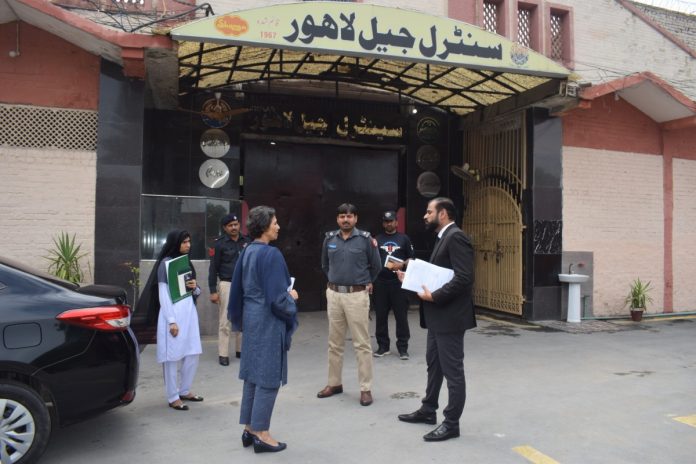LAHORE: Federal Ombudsperson for Protection of Women Against Harassment (FOSPAH) at Workplace Fauzia Viqar conducted an assessment to investigate the treatment of women prisoners in Central Jail Kot Lakhpat, Lahore.
FOSPAH is an autonomous body dedicated to safeguarding the rights and dignity of women, said a press release on Tuesday.
The organization conducts investigations, issues orders, and imposes penalties for violations of laws against harassment and discrimination.
The assessment aimed to identify any instances of harassment, mistreatment, or abuse faced by women prisoners, during their arrest, police custody, and imprisonment.
The federal ombudsperson met IGP and IG prisons to assess female arrest and detention procedures and conditions. The IGP apprised the Ombudsperson of police mechanisms such as Women complaint centers, Tahaffauz Markaz and protection ventres that provide assistance to female victims of violence, disabled and the transgendered persons.
The IG prisons provided comprehensive information about treatment and facilities for women prisoners including separate buildings (within the prison), dedicated female staff, living conditions, skills development, cameras only at the entrance and, the complaint handling mechanism which is centrally located at the IG office.
In her visit and meetings, Ms. Viqar found no evidence and received no reports of physical torture or sexual harassment by the police or prison staff.
She specifically interviewed 21 women prisoners arrested after the May 9 incidents to inquire about any kind of harassment.
They denied the media reports of sexual abuse and negated any sexual or other kind of harassment by police or prison staff.
They however, highlighted issues related to arrests made by male police officers despite the presence of female police officers, unnecessary dragging during late night raids, police not presenting arrest warrants during arrests and restricted access to lawyers in prison.


Comments are closed.